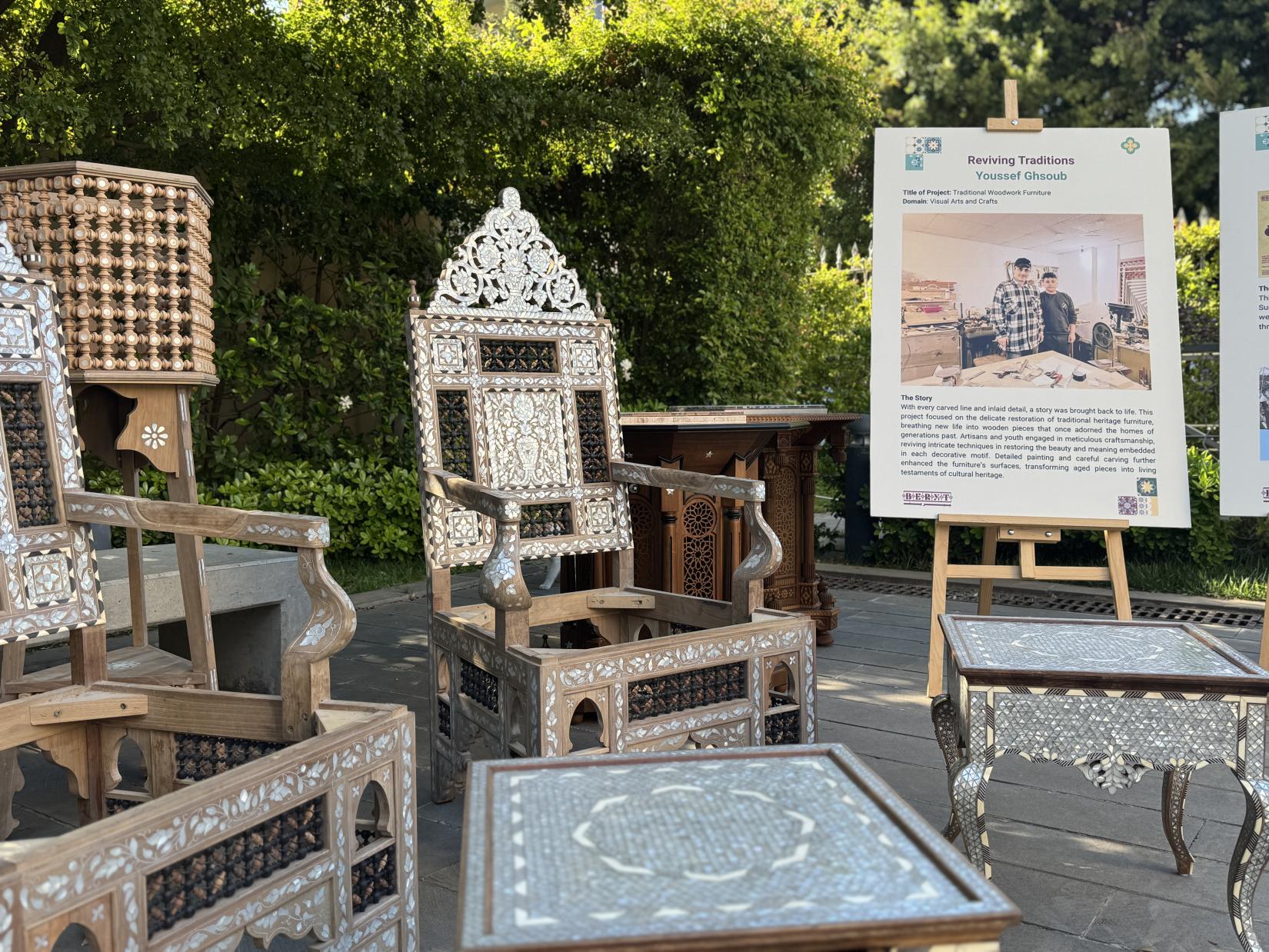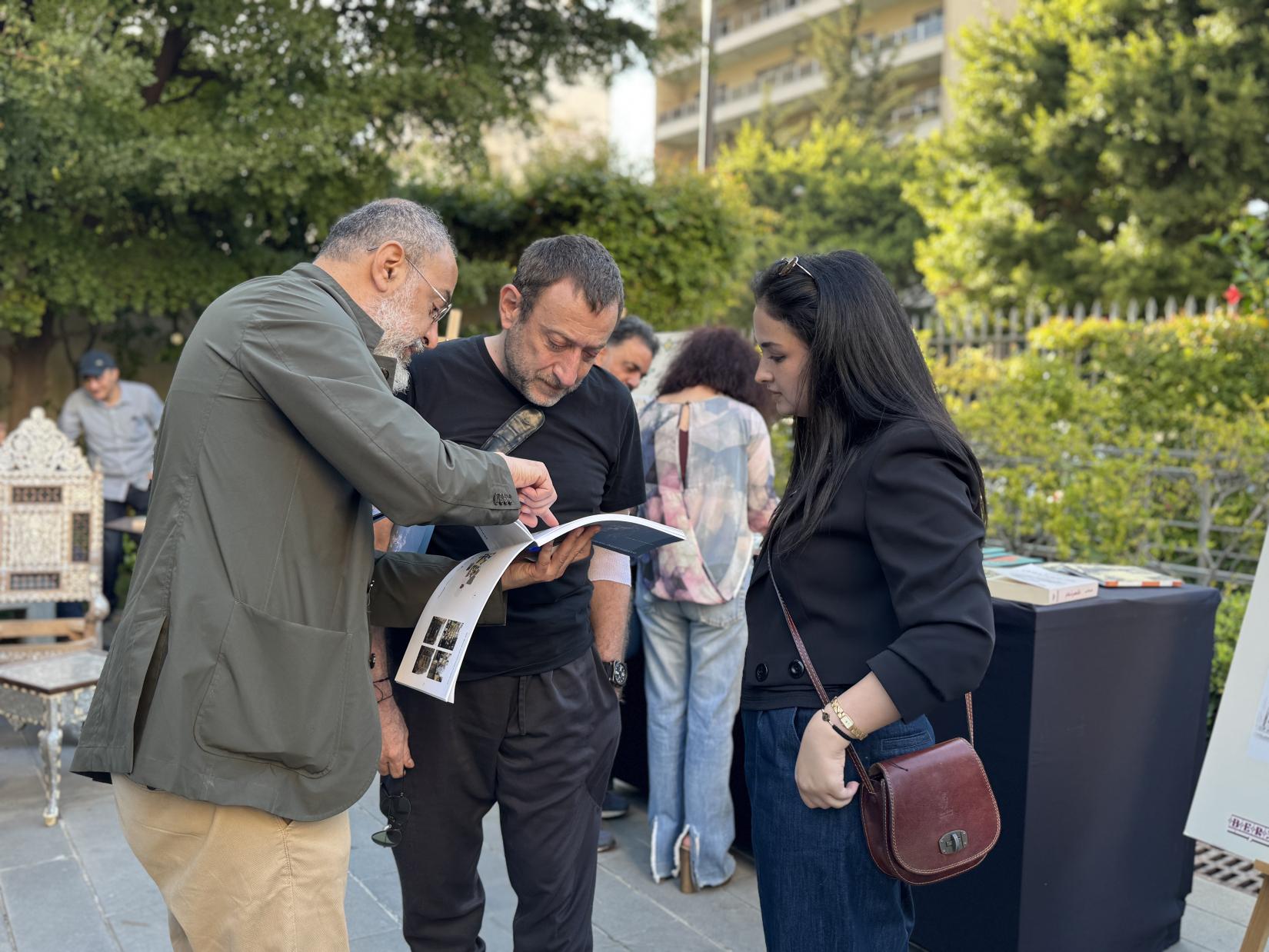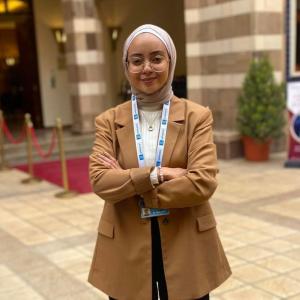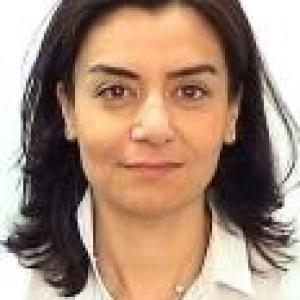BERYT Project Closing Ceremony: A Milestone in Beirut's Cultural and Creative Industries Revival
06 May 2025
- Beirut, Lebanon -- The Beirut Housing Rehabilitation and Cultural Heritage and Creative Industries Recovery (BERYT) project marked a significant milestone today, celebrating the successful conclusion of a transformative journey for Beirut’s cultural and creative sectors in the aftermath of the 2020 Port of Beirut explosion. The event held at the Sursock Museum gathered key stakeholders, including Lebanese government officials, project beneficiaries, representatives from the Lebanon Financing Facility (LFF), UNESCO, UN-Habitat and the World Bank.

Implemented by UN-Habitat and financed by the Lebanon Financing Facility (LFF), a multi-donor trust fund administered by the World Bank, the BERYT project has been central to the recovery and resilience-building of Beirut’s cultural landscape, with UNESCO overseeing the Cultural and Creative Industries (CCI) component. The project has played a crucial role in supporting the recovery of the city’s cultural and creative sectors, rebuilding and promoting its cultural identity alongside physical reconstruction efforts and support to small businesses.
The BERYT project has awarded 139 grants totaling US$1,700,700, benefitting an array of CCI practitioners and entities across six vital cultural domains: Intangible Cultural Heritage, Literature and Press, Heritage and Tourism, Visual Arts, Fine Arts and Crafts, and Performing Arts. These grants have provided a platform for growth and professional development, creating opportunities for marginalized groups and individuals to continue their work, gain new skills, and contribute to Beirut's evolving cultural ecosystem.
The CCI grants awarded by BERYT prioritized low-income youth, women, persons with disabilities, the elderly, as well as other vulnerable segments of Beirut’s cultural and creative society. Proposals submitted by applicants were reviewed by a committee of independent preeminent experts from across Lebanon’s CCI domains and selected for their merit in supporting neighborhood revitalization, economic development, social value, alongside technical feasibility.
“With the steadfast support of our international partners, the BERYT initiative was born as a shared determination to rebuild not just physical spaces but the spirit of a city. It recognized what we have always known: that the soul of Beirut lives in its artists, its creators, and its storytellers. The BERYT project may conclude tonight, but its legacy lives on in every restored space, in every revived dream, and in the unbreakable spirit of a city that will always rise, always create, and always inspire.” said H.E. Laura Lahoud, Minister of Tourism.
At the heart of the ceremony were exhibitions from grant recipients, showcasing their creative processes and final works, illustrating the diversity and vitality of cultural productions in Beirut. These exhibitions stand as a testament to the importance of CCI in not only preserving cultural heritage but also creating sustainable livelihoods for artists and cultural workers. The project has been instrumental in building skills, promoting professional growth, and ensuring long-term viability for the creative sectors.
“Cultural and creative industries are not a luxury. They are essential. They foster dialogue, drive inclusion, create jobs, and help build peace. They are a dynamic force for social cohesion and sustainable development — and this is why UNESCO places culture at the heart of its mission.
The success of this project is a tribute to the extraordinary determination and positive energy of Lebanon’s cultural community. We have witnessed how artists and cultural professionals turn challenges into powerful forms of expression, and loss into meaningful creation. They can help communities heal — and societies move forward.” said Costanza Farina, Director of UNESCO Regional Office in Beirut
“Thanks to the generous support of the Lebanon Financing Facility donors -Canada, Denmark, the EU, France, Germany and Norway- the BERYT project has been instrumental in reviving Beirut’s cultural landscape and complementing the support provided for the socio-economic recovery of vulnerable people and businesses impacted by the explosion “said Jean-Christophe Carret, World Bank Division director for the Middle East Region.
The event also featured a tour of several heritage buildings currently under rehabilitation by the project in Beirut, emphasizing how cultural revitalization is integrated into the broader urban recovery process. This connection between physical rebuilding and cultural recovery highlights the potential of CCI to drive positive social and economic change, fostering inclusive opportunities for youth, women, and vulnerable groups in the creative economy.

As we celebrate the achievements of the BERYT project, it’s clear that the future of Beirut’s creative industries depends not only on recovery but on continuous skill development and fostering new opportunities. By investing in creative sectors, we ensure that Beirut remains a beacon of cultural expression and innovation, where the creative community is empowered to lead in shaping a brighter, more resilient future.
-END-
About the Lebanon Financing Facility (LFF)
Established in December 2020 in the aftermath of the August 4 Port of Beirut explosion and following the launch of the Reform, Recovery and Reconstruction Framework (3RF), the Lebanon Financing Facility (LFF) is a 5 year multi-donor trust fund that pools grant resources and strengthens the coherence and coordination of financing in support of the immediate socio-economic recovery of vulnerable people and businesses impacted by the explosion. To date, the LFF has received contributions and pledges from the governments of Canada, Denmark, France, Germany, and Norway and from the EU.
Subject to the commitment of all Lebanese stakeholders to critical reforms, the LFF will build the foundation for medium-term recovery and the sustainable reconstruction of the Port of Beirut and affected neighborhoods. The LFF prioritizes three focus areas of interventions:
1) Socioeconomic and business recovery;
2) Preparing for reform and reconstruction; and 3) Strengthening coordination, monitoring, accountability and oversight of the 3RF. The LFF benefits from the World Bank’s high fiduciary standards, through the application of its fiduciary framework for financial management, procurement, and environmental and social safeguards. The LLF also ensures that programs promote gender equality and community engagement that target women, youth and vulnerable populations.
About the United Nations Educational, Scientific and Cultural Organization (UNESCO)
UNESCO is the United Nations Educational, Scientific and Cultural Organization. It seeks to build peace through international cooperation in Education, the Sciences and Culture. UNESCO's programmes contribute to the achievement of the Sustainable Development Goals defined in Agenda 2030.
About the United Nations Human Settlements Programme (UN-Habitat)
UN-Habitat works in over 90 countries supporting people in cities and human settlements for a better urban future. Working with governments and local partners, its high impact projects combine world-class expertise and local knowledge to deliver timely and targeted solutions. The 2030 Agenda for Sustainable Development includes a dedicated Goal on cities, SDG 11 – to make cities inclusive, safe, resilient and sustainable.
About the World Bank
The World Bank is an international development organization owned by 187 countries. Its mission is to end extreme poverty and boost shared prosperity on a livable planet. The World Bank works in every major area of development. It provides a wide array of financial products and technical assistance and help countries share and apply innovative knowledge and solutions to tackle today’s intertwined development challenges.







